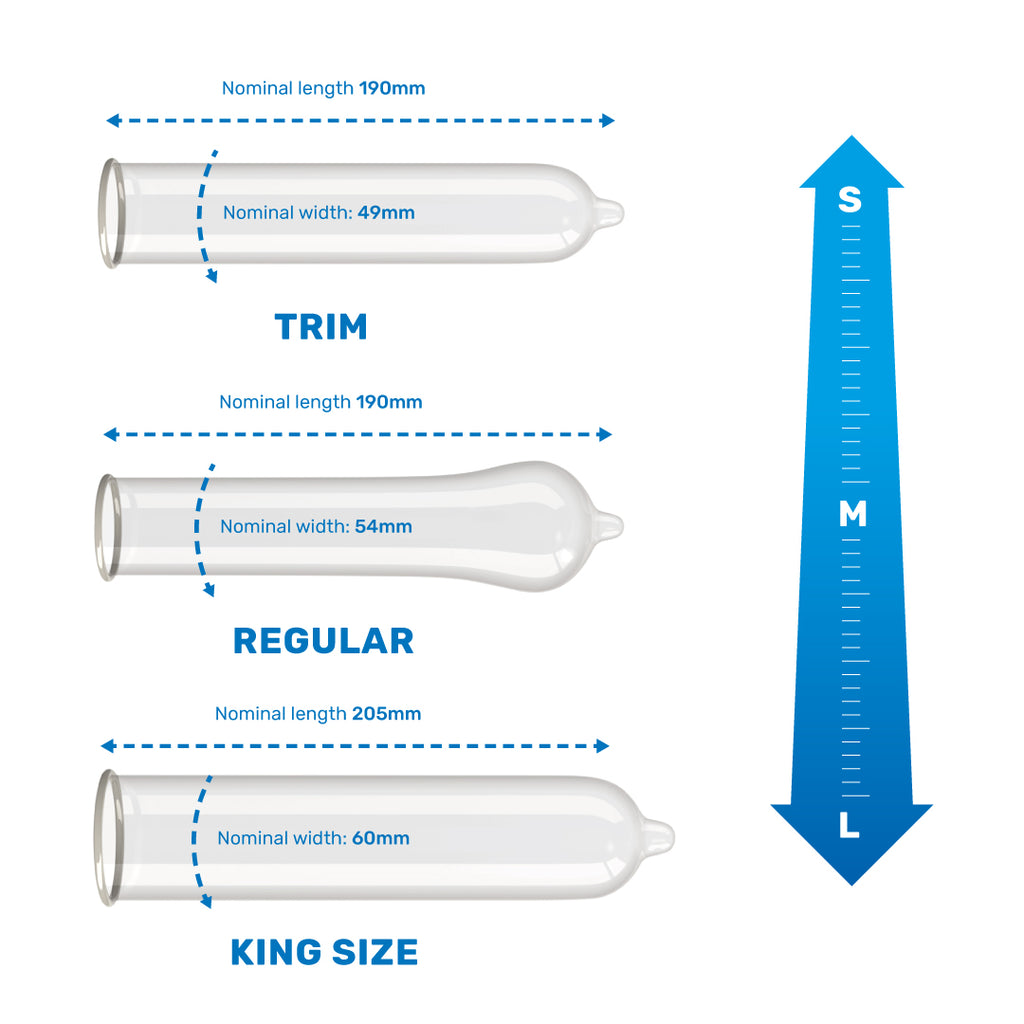
Navigating the Vaginal Changes of Menopause: What You Need to Know
Menopause usually occurs between the ages of 45 and 55 (the average age in the UK is 51) and is a natural stage of ageing that marks the end of a woman’s periods. It's usually confirmed after 12 months without any periods or spotting. As menopause approaches, the ovaries produce less oestrogen, which can lead to various menopausal symptoms, especially in the vaginal area.
Understanding the vaginal changes that take place during menopause and how to manage these changes will help to navigate menopausal symptoms and maintain a healthy sex life. Therefore, let’s find out what vagina changes occur during the menopause and how to manage the symptoms.
What Vagina Changes Occur During Menopause?
Vaginal dryness
One of the most common symptoms of menopause is vaginal dryness. Oestrogen is a sex hormone responsible for many different roles, from puberty, keeping the bones healthy to menstruation and menopause. It also produces natural lubrication helping to keep the vagina moist and elastic. However, when oestrogen levels decrease, the vagina produces less lubrication leading to dryness which can make sex feel painful and uncomfortable.
Thinning of the vaginal walls
During menopause, the vagina not only experiences dryness but the walls of the vagina may also become thinner and less elastic - a condition known as vaginal atrophy. Oestrogen is important in maintaining the thickness and flexibility of the vaginal tissues, so when oestrogen levels decrease these tissues can become tight and you may experience small tears during sex.
Changes in Vaginal pH
As oestrogen levels drop, the pH balance of your vagina can become more alkaline, increasing to a pH level of 6.8. These vaginal changes during menopause can disrupt the natural balance of bacteria in the vagina, which can cause an increase of infections like bacterial vaginosis or yeast infections.
Reduced blood flow
Another common symptom of menopause is reduced blood flow to the vagina. Oestrogen is responsible for causing a healthy blood flow to this area, which is important for maintaining tissue health and sensations. With less blood flow, there may be periods of decreased sensitivity and reduced arousal which can affect your sexual desire and pleasure.
Managing Vaginal Changes During Menopause
Although vaginal changes can be frustrating, there are several ways to manage them - let’s explore a few strategies to help maintain a healthy vagina during the menopause.
Use Lubricants
One of the easiest ways to manage vaginal dryness is by using lubricants. Lubricants are used during sexual activity to reduce friction and make sex more enjoyable and comfortable. Our Lubricating Jelly is specially designed to provide relief from vaginal dryness. It’s gentle, water-based and compatible with condoms, plus it’s also suitable for pre-to-post menopause.
Therefore, using lubricants while going through the menopause can help to maintain a healthy vagina microbiome and make sure your sex life remains satisfying and pleasurable.
Take Hormone Replacement Therapy (HRT)
Hormone Replacement Therapy (HRT) is the most common treatment method for managing menopause symptoms. HRT involves using oestrogen to replace your body’s own levels and comes in either oral tablets or using patches, gel, implants or a spray. For those who haven't had a hysterectomy, you may also need to take progesterone to protect the lining of your womb from the effects of oestrogen - a combined patch contains both hormones. You can also have the coil fitted or take tablets. HRT also benefits vaginal changes during menopause by improving blood flow and restoring tissue health, which helps reduce dryness and discomfort.
When you first begin HRT, the doctor might need to adjust your dose of oestrogen replacement until the optimum level is found, as absorption can differ among individuals. You can discuss with your doctor whether HRT is the right option for you.
Regular Sexual Activity
Having regular sex can help keep your vagina healthy during menopause. Sexual activity, whether through sexual intercourse, mutual touching or masturbation, increases the blood flow to the vaginal area which helps to maintain tissue elasticity and natural lubrication.
Using lubricants during sexual activity is especially important during menopause to reduce discomfort and prevent any irritation or tears to the vagina tissue. If you find sex uncomfortable or painful, explore other forms of sexual activity, like oral sex to maintain closeness with your partner. Talking to your partner about your needs and the vaginal changes taking place during menopause can also increase intimacy and help you both navigate around these changes together.
Make Healthy Lifestyle Changes
Maintaining a healthy lifestyle can also help ease menopause symptoms. Eating a balanced diet rich in vitamins, minerals, including a diet that is low in saturated fat and salt to reduce blood pressure, and a diet that is rich in calcium and Vitamin D to help strengthen bones. Also, engaging in regular exercise improves circulation which can benefit vaginal health, helps to manage stress and lower the risk of heart disease.
Stopping smoking and limiting alcohol can further maintain hormonal balance. Smoking has been shown to increase the risk of experiencing early menopause and triggers hot flashes. Also, smokers are at a higher risk of developing osteoporosis and heart disease, while drinking can also increase hot flushes and a higher risk of developing breast cancer. During menopause it’s a good time to make healthier lifestyle changes to help manage the physical and vaginal symptoms of menopause.





